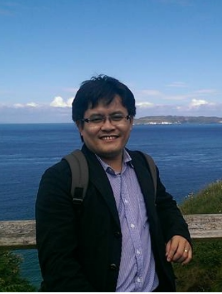
Seminars
March 01, 2022: Dr. Vo Nguyen Son (Duy Tan University), A Sustainable Multi-tier Multi-hop Emergency Communication System
In emergency scenarios, e.g., during a disaster, communication systems are partially (or completely) interrupted with very limited resources due to infrastructures destruction and hence the lack of essential services. Meanwhile, the demand for communication reaches its highest peak ever since users need to contact loved ones and make sure they are safe, inform first responders and local governments about surrounding conditions, and receive urgent instructions for safety and resilience. Rather than only high quality of service (QoS), the affected users now require high quality of sustainability (QoSus) of communications that are characterized by high response, interoperable and robust connections, high hit rate and delivery capacity of contents, and resource savings. In this talk, I’ll present our work on designing a sustainable multi-tier multi-hop emergency communication system (SMM-ECS) for high QoSuS to reduce as much harm as possible in emergency scenarios. Finally, we discuss the results to demonstrate the benefits of our proposed SMM-ECS.
Speaker: Dr. Vo Nguyen Son, Duy Tan University
Time: 15:30, Tuesday, March 01, 2022
Venue: Webinar

Nguyen-Son Vo received the Ph.D. degree in communication and information systems from Huazhong University of Science and Technology, China, in 2012. He is with the Institute of Fundamental and Applied Sciences, Duy Tan University, Ho Chi Minh City, Vietnam. His research interests focus on self-powered multimedia wireless communications, quality of experience provision in wireless networks for smart cities, and IoT for disaster and environment management. He received the Best Paper Award at the IEEE Global Communications Conference 2016 and the prestigious Newton Prise 2017. He has been serving as an Associate Editor of IEEE Communications Letters since 2019; Guest Editor of Elsevier Physical Communication, Special Issue on “Mission Critical Communications and Networking for Disaster Management”, 2019; Guest Editor of IET Communications, Special Issue on “Recent Advances on 5G Communications”, 2018; and Guest Editor of Springer Mobile Networks & Applications, Special Issues on “The Key Trends in B5G Technologies, Services and Applications”, 2021, “Wireless Communications and Networks for 5G and Beyond”, 2018 and “Wireless Communications and Networks for Smart Cities”, 2017.
